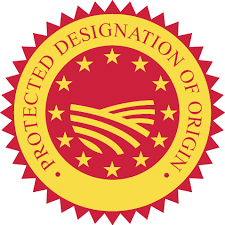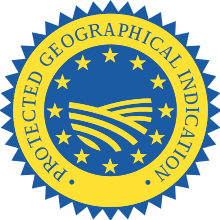Geographical Indications: Applications submitted in respect of “Irish Grass-Fed Beef” and “Achill Island Sea Salt”
In a welcome announcement given Ireland’s relatively low number of food products registered under the EU geographical indication regime, the Department of Agriculture, Food and the Marine (“DAFM”) announced last week that they have initiated the required national opposition procedure in respect of an application.
This application is to have the name “Irish Grass-Fed Beef” registered with Protected Geographical Indication (“PGI”) status pursuant to Regulation (EU) No. 1151/2012 (“the 2012 Regulation”), as well as an application to have the name “Achill Island Sea Salt” registered with Protected Designation of Origin (“PDO”) status.
Geographical indications (“GIs”) are names or signs used on products that signify a link between that product and a specific geographical location. They are designed to protect the intellectual property vested in products with a unique link to a particular territory and/or production method. Prominent examples include food products such as Prosciutto di Parma (Parma ham) (PDO), Parmigiano Reggiano (Parmesan cheese) (PDO) and Champagne (PDO). Since the launch of an EU-level geographical indications regime for food products in 1992, over 1,500 traditional foods with distinct links to the geographical areas in which they are produced have been recognised as having PDO or PGI status by the EU Commission. A geographical food name must be registered with the EU Commission in order to benefit from legal protection under the regime.
The 2012 Regulation details how applications for PDO/PGI status must show how the characteristics of the region – topographic, savoir faire, reputation, natural resources – have an impact on the characteristics of the particular applicant product. In order to attain PDO status, an applicant must demonstrate that the product in question is produced, prepared and processed in the geographical area and that a causal relationship exists between the quality and/or unique characteristics of the product, and the particular characteristics of the area in which it is produced. For a product to become registered as a PGI, the link between the product and place does not need to be a core attribute of the product, however production must still take place within a defined geographical area and the product must still possess a sufficient level of quality and reputation arising from a sufficiently specific set of characteristics attributable to that area.
The application for registration begins with the product specification document, which sets out the details of the food product for which protection is being sought. Information must also be provided evidencing the link between the characteristics of the product and the place that it is traditionally produced. Examples of this can include the use of ingredients, materials, process, or geographical features that are specific to the geographical area.
Once this specification document is compiled, it is first addressed to the relevant authority in the relevant Member State. In Ireland, applications are evaluated by DAFM. There is also an obligation placed on the relevant authority to have in place an objection procedure. Once an application is lodged, details of the application must therefore be published and a reasonable period of time for objections to the application proceeding provided. Any natural or legal person who has a legitimate interest in the application, and who is established within the Member State may lodge such an objection. If an objection is lodged, the relevant authority must consider its admissibility, taking into account whether the foodstuff for which an application has been made is in compliance with the terms of the 2012 Regulation, and in particular, whether it is a type of name that is eligible for protection.
If the relevant authority decides that the application is eligible, it is then forwarded to the EU Commission for assessment. The details of this decision are also published and a final opportunity for objections provided. Once any such objections have been considered and resolved, the application comprising of a summary of the details of the pre-assessed application, along with the details of the applicant group, the details of publication by the relevant authority and the declaration that the relevant authority considers that the applicant product is eligible for protection, is then formally lodged with the Commission. A list of applications received is published monthly in the Official Journal of the European Union. Once the details of the application are published in the Official Journal of the European Union, other Member States and/or third countries also have an opportunity to submit an objection to the registration by lodging a document of objection with the Commission.
Once registered, food names with PDO/PGI status are afforded a high level of legal protection under the EU scheme in that they are protected against any use of the protected name, or any other practice that is liable to mislead consumers as to the true origin of the product, by operators who are not covered by the terms of the product specification. Importantly, registration as an EU GI can also lead to mutual recognition by third countries and the corresponding ability to enforce the GI outside of the EU under international trade agreements, something that may have been a particularly significant factor in the decision of Bord Bia to become the applicant in respect of the application for “Irish Grass-Fed Beef”. As an example, recognition and protection of geographical indications for over 200 products (including Irish Whiskey) formed part of a free trade agreement between Vietnam and the European Union that entered into force on 1 August 2020. On the enforcement side a consortium representing Parmiggiano-Reggiano PDO producers was recently successful in forcing Campbell’s to remove reference to the cheese on labels for its ‘Prego’ pasta sauce lines on sale in the US.
In comparison to other Member States, Ireland has been slow in embracing the EU GI regime in terms of applications for registration of Irish food products. If successful, “Irish Grass-Fed Beef” and “Achill Island Sea Salt” would join a short list of only 7 Irish food product registrations:
PDO
- Oriel Sea Salt
- Oriel Sea Minerals
- Imokilly Regato (specification being amended)
PGI
- Timoleague Brown Pudding
- Clare Island Salmon
- Connemara Hill Lamb
- Waterford Blaa/Blaa
- Sneem Black Pudding
It should be borne in mind however that “Irish Whiskey”, “Irish Poteen” and “Irish Cream” are also registered as PGIs under the Spirit Drinks Regulation (EC) No 110/2008, and there are also pending PGI applications for “Wexford Blackcurrants” and “Comeragh Mountain Lamb” under the 2012 Regulation. However this level of activity pales in comparison to the hundreds of individual registrations attributable to other Member States such as France, Italy and Spain.
If successful, these two further registrations for “Irish Grass-Fed Beef” and “Achill Island Sea Salt” would signify a further steps towards more widespread use of the EU GI scheme by Irish producers, a potentially powerful tool for protecting and promoting high quality Irish food products in export markets across the world.
The full product descriptions for both products are set out at: www.agriculture.gov.ie/gi.
Completed opposition submissions must be made to the DAFM by close of business on 11th September 2020 by email to Geographicalindications@agriculture.gov.ie.
Written by James Gallagher and Danielle Sumner
A phased return to work is taking place in different sectors. Fieldfisher is committed to supporting you through the transition and beyond. We continue to be available to our clients either remotely or in person, with your business as usual matters, as well as for C-19 support. Please review our Covid-19 hub for updates and get in touch if you require further information.

